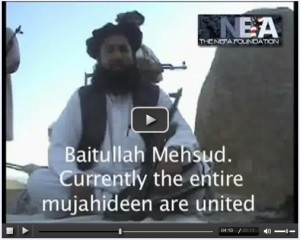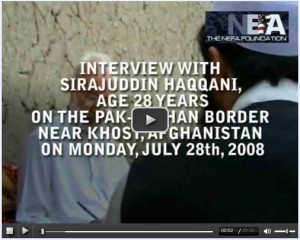Pakistan Government Suspends Operations in NWFP
BY Herschel SmithIn Pakistan, Kandahar and Taliban Operations, The Captain’s Journal made the following observation concerning Pakistan Army operations in the NWFP.
Without security, the population will not side with NATO or the Karzai government. The same can be said of the situation in Waziristan and to the South in and around Quetta. The population might hate the Taliban, but will learn to live with them if they are seen to be the probable victors. It happened once before. Taliban, NATO and Pakistani operations are in full swing, and it is imperative that force projection be applied to gain and hold as much terrain as possible – including human terrain – before winter sets in.
Time was of the essence in these operations, and if Pakistan had been prepared to complete the operations before winter set in, they should have been started months ago. It now appears that the Pakistan government has suspended operations in the North West Frontier Province against the Taliban.
Lahore, Aug 30 (PTI) The Pakistan government today announced that it would suspend military operations against the Taliban in the country’s northwestern tribal areas in view of the holy Islamic month of Ramzan but warned that any action by the militants would meet with a firm response.
Rehman Malik, who functions as the Interior Minister, said operations against militants by the army and law enforcement agencies would be suspended between August 31 and the second day of the Islamic festival of Eid-ul-Fitr, which marks the culmination of Ramzan.
“This move should not be considered as a sign of weakness on the part of the governmentIf there is any action (by the militants) against the security forces, a firm response will be made,” he told reporters.
The holy month of Ramzan is expected to begin in Pakistan on September two or three after the sighting of the moon.
The Pakistan Army and paramilitary forces are currently engaged in operations against Taliban fighters in the tribal Bajaur Agency and the scenic Swat valley in the North West Frontier Province. A total of 562 militants had been killed in the operations so far, Malik said.
He made it clear that there would be no ceasefire and that the security forces would only suspend their operations against the militants.
The suspension was being done only for the month of Ramzan, he said.
The government “reserves the right to reinitiate law enforcement actions and military operations” if the militants begin regrouping or carry out any attacks on the security forces, he said.
But the Taliban feel no such need to halt operations, and in fact have vowed exactly the opposite of the government’s promise. They have rejected the government action and said that their tactics will continue through Ramadan (despite a tip of the hat to the government offer by Taliban spokesman Maulvi Omar by releasing several hostages).
This action means that the operations in the North West Frontier Province were never intended to be conclusive or decisive. It was questionable whether the Pakistan Army had good enough weather in the remainder of the summer and fall to finish the Tehrik-i-Taliban. Now that they have given up for [at least] a month, the conclusion of these operations can be succinctly stated as “the Taliban won.” Destroyed homes and Taliban-controlled terrain will greet the noncombatants as they return to their cities and towns, and they will always remember that it was the Pakistan Army that failed to finish the job. Next time it will be even harder for the Pakistan forces.






